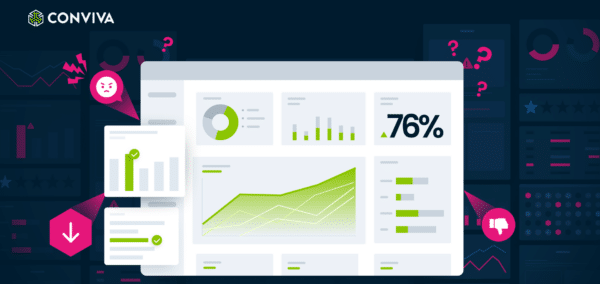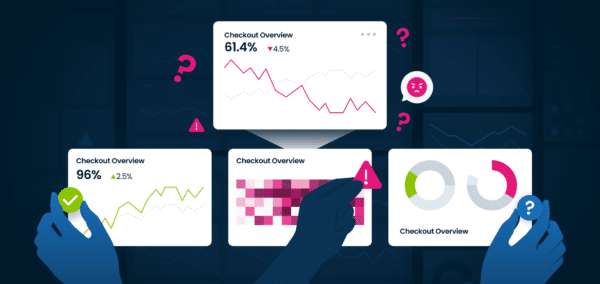
When every insight requires engineering, product velocity stalls—and growth slows with it.
You Spot the Drop. But You Can’t See the Cause.
You notice engagement dipping on a key feature. You already have a hypothesis. But the metric wasn’t tagged.
Now what?
-
- File a Jira ticket
-
- Wait for engineering capacity
-
- Hope it makes the next sprint
-
- Wait again for QA
-
- Maybe—eventually—you get your answer
By then? The moment’s gone. So is the opportunity to act.
Why Does Every Question Become a Sprint?
Most product teams are stuck with outdated analytics stacks that demand:
-
- Manual instrumentation for every event
-
- Custom tagging for every new flow
-
- Data engineering just to answer a question
This turns insight into an engineering dependency. Curiosity becomes backlog. And velocity turns to drag.
You can’t move fast if every question costs you a developer. And you can’t learn fast if it takes weeks to get an answer.
It’s Not a Collaboration Problem. It’s a Control Problem.
Sure, teams try to solve this with:
-
- Shared documentation
-
- Dev-in-product shadowing
-
- Ritualized syncs
But these are process Band-Aids.
The real issue? Product teams don’t own their own discovery. If insight requires code, then learning requires permission. And that’s where speed dies.
The True Cost of Instrumentation Bottlenecks
When devs are the gatekeepers for metrics, your team:
-
- Delays experiments
-
- Ignores hunches
-
- Misses signals
-
- Ships without confidence—or not at all
Meanwhile, your competitors are already iterating on what they’ve learned.
Even when engineering wants to help, tagging comes at a cost:
-
- It bloats client code
-
- It introduces error and tech debt
-
- It slows down releases
Eventually, teams stop asking questions—not because they don’t care, but because it’s too hard to get answers.
What If Product Didn’t Have to Wait?
Imagine if product, growth, and UX teams could:
-
- Define new metrics without writing a line of code
-
- Create flows visually, without tagging
-
- Ask questions and get real-time answers
-
- Test and learn in minutes—not weeks
You’re not just moving faster. You’re learning faster. That’s what drives real growth.
Then vs. Now: Traditional Stack vs. Real-Time Performance Analytics
| Traditional Product Analytics | Conviva Real-Time Performance Analytics |
| Metrics require tagging | Metrics built in seconds—no code |
| Answers take a sprint | Answers in real time |
| Dashboards show what, not why | AI detects root cause automatically |
| Data fragmented across tools | Unified view of UX + engagement + backend |
| PMs wait on devs | PMs move at the speed of thought |
Don’t Confuse Us with Product Analytics
You’ve probably searched for “no-code product analytics” before. But most tools in that category still rely on tagging and batch-processed events. They surface symptoms, not causes.
Conviva isn’t product analytics. It’s a new category entirely. Real-Time Performance Analytics—built to unify behavior, experience, and backend performance in one live, decision-ready view.
No tags. No guesswork. No waiting.
Product Velocity Starts with Product Autonomy
High-performing teams don’t wait for data. They ask, observe, learn, and act—without waiting on the next sprint.
Because when product teams own their insights, they move at the speed of curiosity.
There’s a Better Way
You shouldn’t need to file a ticket just to test a hypothesis. You shouldn’t have to wait for tags just to validate an idea.
With Conviva Real-Time Performance Analytics, product teams can:
-
- Define flows
-
- Build metrics
-
- Get answers instantly
No code. No backlog. Just clarity.
Want to See It in Action?
Curious what this looks like in practice? See how Conviva lets PMs ask and answer questions—without writing a single line of code.
Coming Up Next: You Don’t Need Another Dashboard. You Need an Answer.
Read the previous blogs in the series:
Conversion Rate Drops: Why Product Teams Still Can’t Find Root Cause
Cross-Functional Root-Cause Analysis: Why Product, Engineering, and Ops Can’t Align
Your Dashboard Says It’s Fine. Your Users Say Otherwise.
Conviva empowers the world’s leading brands to deliver flawless digital experiences and drive growth with real-time performance analytics and precise AI-powered insights and automation. By leveraging and computing client-side data from all users while they are in session, the Conviva platform unifies customer experience, engagement, and technical performance with business outcomes. This approach reveals issues and opportunities that other solutions miss, helping you boost conversions and revenue, optimize engagement, and proactively resolve issues before they impact your customers.








